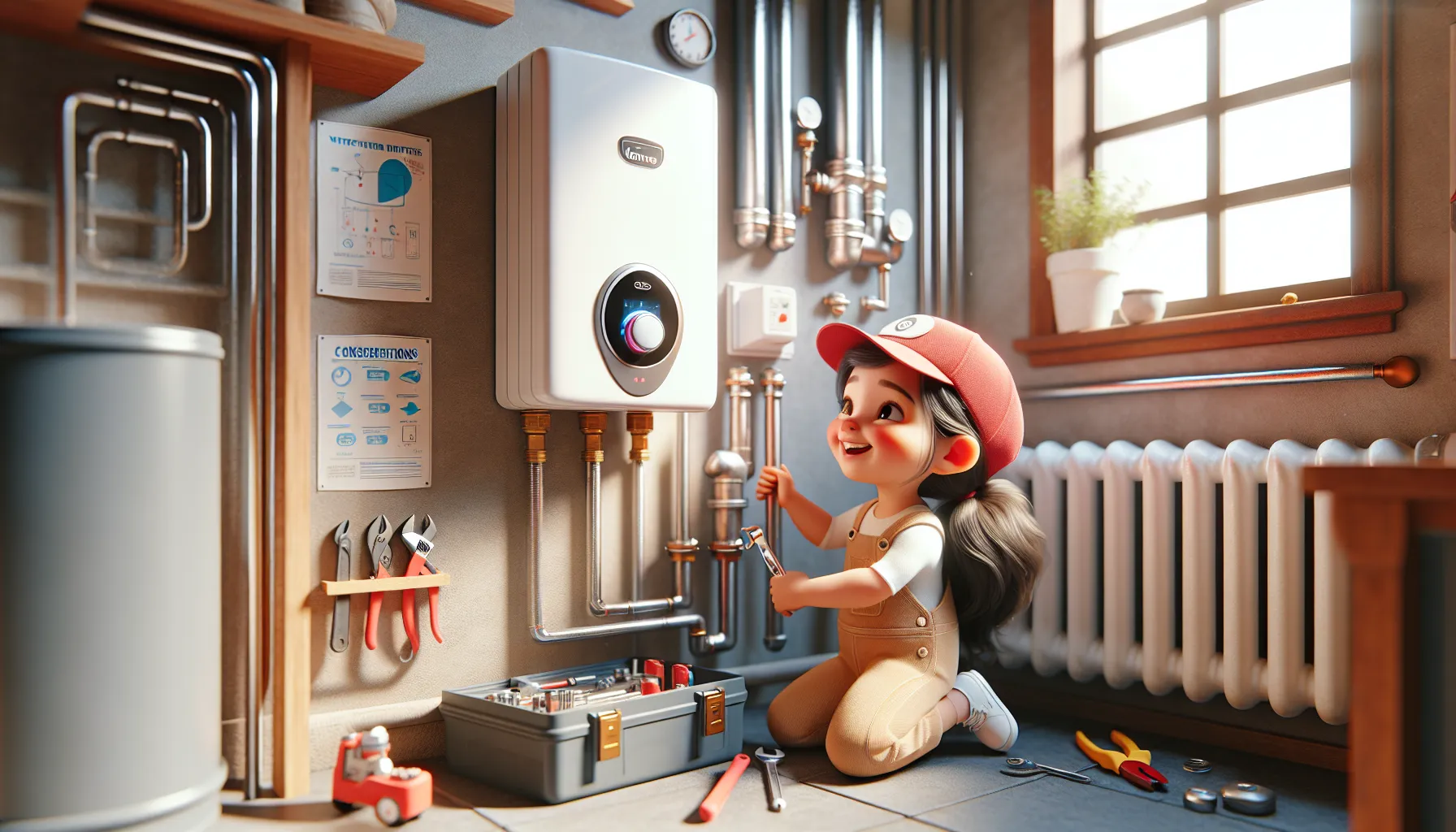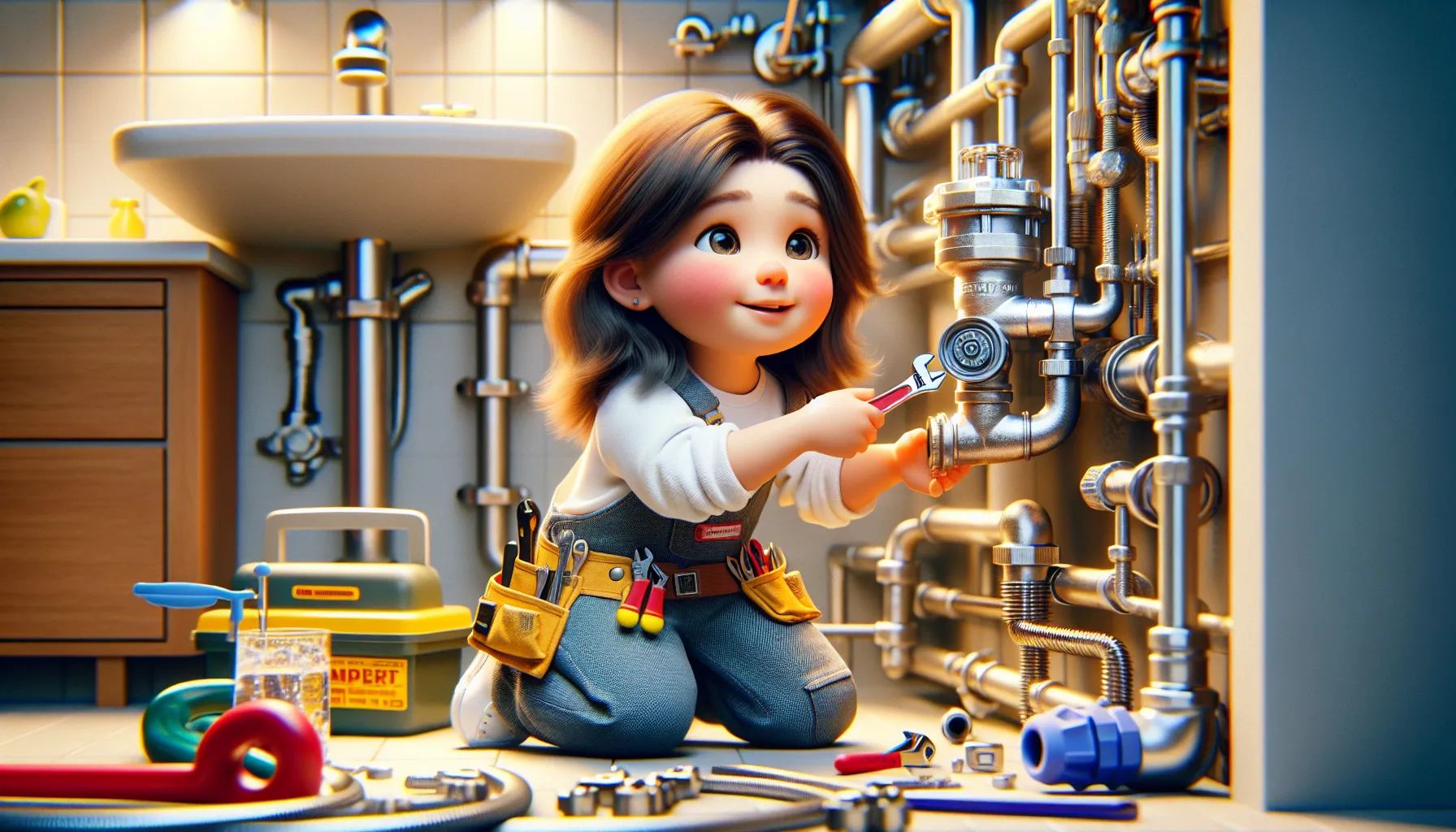Most homeowners are familiar with traditional water heaters that store and heat water in a tank, but tankless water heaters offer a more modern and efficient alternative. One of the biggest advantages of tankless water heaters is their energy efficiency, as they only heat water when it is needed, eliminating standby heat loss. This can result in lower energy bills over time. Additionally, tankless water heaters are space-saving as they are typically smaller and can be mounted on walls, freeing up valuable floor space.
However, there are also drawbacks to consider. The initial cost of a tankless water heater is typically higher than that of a traditional unit, and installation can be more complex. Additionally, while tankless water heaters provide a continuous supply of hot water, they may struggle to keep up with high demand in large households. It’s important to weigh these pros and cons when considering whether a tankless water heater is the right choice for your home.
Key Takeaways:
- Energy Efficiency: Tankless water heaters are more energy-efficient than traditional tank heaters as they only heat water when needed, resulting in lower utility bills.
- Endless Hot Water: Tankless water heaters provide a continuous supply of hot water, eliminating the need to wait for a tank to refill and reheat.
- Space Saving: Tankless water heaters are compact and wall-mounted, saving valuable space compared to bulky tank heaters.
- Longevity: Tankless water heaters have a longer lifespan of about 20 years, compared to traditional tank heaters that typically last 10-15 years.
- Upfront Costs: Tankless water heaters have a higher initial cost than traditional tank heaters, including installation expenses that may require upgrades to gas lines or electrical systems.
Understanding Tankless Water Heaters
It is important to understand how tankless water heaters work before deciding if they are the right choice for your home.
Definition and How They Work
Heaters are innovative appliances that heat water directly without the use of a storage tank. When a hot water tap is turned on, cold water travels through a pipe into the unit. The water is then heated using either a gas burner or an electric element, providing a constant supply of hot water. Once the tap is turned off, the unit shuts off, eliminating the standby energy losses associated with traditional water heaters.
Types of Tankless Water Heaters
Tankless water heaters are available in two main types: gas-powered and electric. Gas-powered units tend to have a higher flow rate, making them suitable for larger households or homes with high hot water demands. Electric units are more compact and easier to install, but they may not be able to keep up with the hot water needs of larger households.
| Gas-Powered Tankless Water Heaters | Electric Tankless Water Heaters |
| Higher flow rate | Compact size |
| Suitable for larger households | Easy installation |
| More powerful | Limited hot water supply for larger households |
| Requires professional installation | May require upgrades to electrical system |
| More expensive upfront cost | Lower operating costs |
Another important factor to consider when choosing a tankless water heater is the climate in which you live. Gas-powered heaters may be more efficient in colder climates where a higher flow rate is needed to maintain consistent hot water. On the other hand, electric heaters may be more suitable for warmer climates or smaller households with lower hot water demands.
- Gas-powered units are more powerful and suitable for larger households.
- Electric units are more compact and easier to install.
- Recognizing the specific needs of your household is crucial in determining the most appropriate type of tankless water heater.
Advantages of Tankless Water Heaters
Energy Efficiency
One of the key advantages of tankless water heaters is their energy efficiency. Unlike traditional water heaters that constantly heat and reheat a large tank of water, tankless water heaters only heat water when it is needed. This on-demand heating approach eliminates the standby energy losses associated with keeping a large volume of water hot at all times. By only using energy when hot water is being used, tankless water heaters can help homeowners save significantly on their energy bills.
Longevity and Durability
On top of being energy-efficient, tankless water heaters are also known for their longevity and durability. These units have a longer lifespan compared to traditional water heaters, often lasting up to 20 years or more with proper maintenance. Tankless water heaters are less prone to corrosion and leaks since they do not store water, which can help homeowners avoid costly repairs or replacements in the long run.
Longevity and durability are two significant advantages of tankless water heaters, providing homeowners with peace of mind and cost savings over time.
Space Savings
With tankless water heaters, homeowners can enjoy the benefit of space savings. Traditional water heaters with tanks can take up a considerable amount of space in a home, especially in small utility closets or basements. Tankless water heaters are much smaller and can be mounted on walls, freeing up valuable floor space for other storage needs.
With tankless water heaters, homeowners can optimize their living space and enjoy a more streamlined and efficient home layout.
Instant and Endless Hot Water Supply
Any homeowner who has experienced running out of hot water in the middle of a shower will appreciate the instant and endless hot water supply provided by tankless water heaters. These units heat water on demand, ensuring that there is always a constant supply of hot water available. Whether it’s for a long shower, filling up a large bathtub, or running multiple appliances at once, tankless water heaters can deliver hot water whenever needed.
Water temperature fluctuation is minimized with tankless water heaters, ensuring a consistent and reliable hot water supply for your household needs.
Lower Operating Costs Over Time
Efficiency is another significant advantage of tankless water heaters when it comes to lower operating costs over time. While the initial cost of purchasing and installing a tankless water heater may be higher than a traditional water heater, the energy savings and longer lifespan of tankless units can result in lower overall operating costs in the long term. With proper maintenance and regular usage, homeowners can enjoy the financial benefits of reduced energy consumption and extended equipment life.
Advantages of tankless water heaters include lower operating costs over time, making them a cost-effective and efficient choice for homeowners looking to save money in the long run.
Disadvantages of Tankless Water Heaters
Higher Initial Cost and Installation Complexity
Not all that glitters is gold, and this rings true for tankless water heaters when it comes to upfront expenses. An initial investment in a tankless water heater can be significantly higher than traditional tank-style units. The cost includes not just the unit itself but also installation, which can be complex and may require upgrades to your home’s electrical system or gas lines.
Limited Hot Water Output for Simultaneous Use
The potential drawback of tankless water heaters is their limitation in providing hot water to multiple sources at once. The unit may struggle to keep up with the demand if you try to run a dishwasher, shower, and washing machine simultaneously. While sizing the unit correctly can alleviate this issue to some extent, it’s necessary to manage your hot water usage to avoid disappointment.
Output can vary depending on the model and size of the tankless water heater. It’s crucial to consider your household’s hot water needs and habits to determine if a tankless system can adequately meet your requirements.
Inconsistent Water Temperature Issues
| Initial | Solution |
| Water temperatures in tankless systems can fluctuate, leading to uncomfortable showers or difficulties in finding the right setting for various tasks. | Installing a buffer tank or a mixing valve can help regulate water temperatures and provide a more consistent flow. |
Installation of additional equipment may increase the overall cost of switching to a tankless water heater. However, the benefits of consistent hot water temperatures may outweigh the added expense in the long run.
Potential for Additional Retrofitting Costs
When transitioning from a traditional water heater to a tankless system, there may be costs associated with retrofitting your home. Higher power draw or specific ventilation requirements could necessitate updates to your electrical or plumbing infrastructure, adding to the overall project expenses.
Maintenance and Repair Considerations
Issues related to maintenance and potential repairs should also be factored into your decision to invest in a tankless water heater. While these units are generally durable, they may require periodic descaling or flushing to maintain peak performance. Additionally, repairs can be more complex and costly due to the advanced technology used in tankless systems.
Environmental Impact
Reduction in Energy Consumption
Energy consumption is a key concern when it comes to the environmental impact of water heating systems. Tankless water heaters are known for their energy efficiency compared to traditional storage tank water heaters. By heating water only when needed, tankless water heaters avoid the standby heat loss that occurs with storage tank heaters. This results in a significant reduction in energy consumption, leading to lower utility bills and a reduced environmental impact.
Emissions and Carbon Footprint
Regarding emissions and carbon footprint, tankless water heaters offer significant advantages over traditional water heaters. The reduced energy consumption of tankless water heaters means lower greenhouse gas emissions, helping to mitigate the impact of climate change. By switching to a tankless water heater, homeowners can lower their carbon footprint and contribute to a cleaner, healthier environment.
Another benefit of tankless water heaters is that they have a longer lifespan than traditional storage tank water heaters. This means that fewer units end up in landfills, reducing waste and the associated environmental impact. Additionally, tankless water heaters are more energy-efficient, which means they require fewer resources to operate over time. This combination of longevity and efficiency makes tankless water heaters a sustainable choice for environmentally conscious consumers.
Economic Considerations
Cost-Benefit Analysis
Economic experts often recommend considering the cost-benefit analysis before investing in a tankless water heater. While these units tend to have a higher upfront cost compared to traditional water heaters, the long-term savings can outweigh the initial expense. The energy efficiency and longevity of tankless water heaters mean lower utility bills and fewer replacements over time, resulting in substantial savings for homeowners.
Incentives and Rebates for Energy Efficiency
Any homeowner looking to make the switch to a tankless water heater should explore incentives and rebates for energy efficiency offered by local or federal government agencies, as well as utility companies. These financial incentives can offset the initial cost of purchasing and installing a tankless water heater, making it a more attractive investment. Energy-efficient appliances often qualify for tax credits or rebates, providing additional savings for homeowners who are environmentally conscious and cost-conscious.
Making the Right Choice
Factors to Consider When Choosing a Water Heater
Keep energy efficiency, hot water demand, and installation costs in mind when selecting a water heater for your home. Tankless water heaters are known for their energy efficiency as they heat water on demand, reducing standby energy losses. Consider the hot water demand in your household to ensure the tankless water heater you choose can meet the needs of your family. Additionally, factor in the installation costs as tankless water heaters may require specific venting and electrical upgrades.
- Energy efficiency
- Hot water demand
- Installation costs
This careful consideration will help you make an informed decision on the most suitable water heater for your home. This is especially important as the right choice can lead to long-term savings and uninterrupted hot water supply.
Comparing Tankless with Traditional Tank Water Heaters
| Tankless Water Heaters | Traditional Tank Water Heaters |
| Energy efficient | May have standby heat loss |
| Compact size | Large storage tank |
| Longer lifespan | Shorter lifespan |
When considering choice, it’s important to weigh the pros and cons of tankless water heaters against traditional tank models. Tankless water heaters offer the advantage of being more energy efficient and having a longer lifespan compared to traditional tanks. However, traditional tank water heaters may come at a lower initial cost and are simpler to install.
Water
| Most important | Dangerous |
| Energy efficiency | Standby heat loss |
| Longer lifespan | N/A |
Final Words
Drawing together the pros and cons of tankless water heaters provides a comprehensive overview of this popular home appliance. While the energy-efficient and space-saving benefits of tankless water heaters are significant advantages, their higher upfront costs and potential limitations in meeting high hot water demand should be carefully considered by consumers. It is necessary for homeowners to weigh these factors against their own needs and preferences to determine whether a tankless water heater is the right choice for them.
FAQ
Q: What is a tankless water heater?
A: A tankless water heater is a heating system that provides hot water on demand without the need for a storage tank. It heats water directly as it flows through the unit, which can result in energy savings and unlimited hot water supply.
Q: How does a tankless water heater work?
A: Tankless water heaters heat water using a heat exchanger, which is activated when hot water is requested. Cold water enters the unit, is heated by the heat exchanger, and then delivered to the faucet or appliance. This process eliminates the standby energy loss associated with traditional water heaters.
Q: What are the pros of tankless water heaters?
A: The pros of tankless water heaters include energy efficiency, space-saving design, longer lifespan than traditional water heaters, and the ability to provide hot water on demand without the risk of running out. They also have lower operating costs over time compared to storage tank water heaters.
Q: What are the cons of tankless water heaters?
A: Some cons of tankless water heaters include higher upfront costs for purchase and installation, potential for increased maintenance requirements, limited flow rates for simultaneous hot water use in large households, and the need for a dedicated gas line or upgraded electrical system in some cases.
Q: Are tankless water heaters suitable for every home?
A: Tankless water heaters are more suitable for homes with low to moderate hot water usage and where space is limited for a traditional water heater. Larger households with high hot water demand may require multiple tankless units or a hybrid system to meet their needs effectively.



